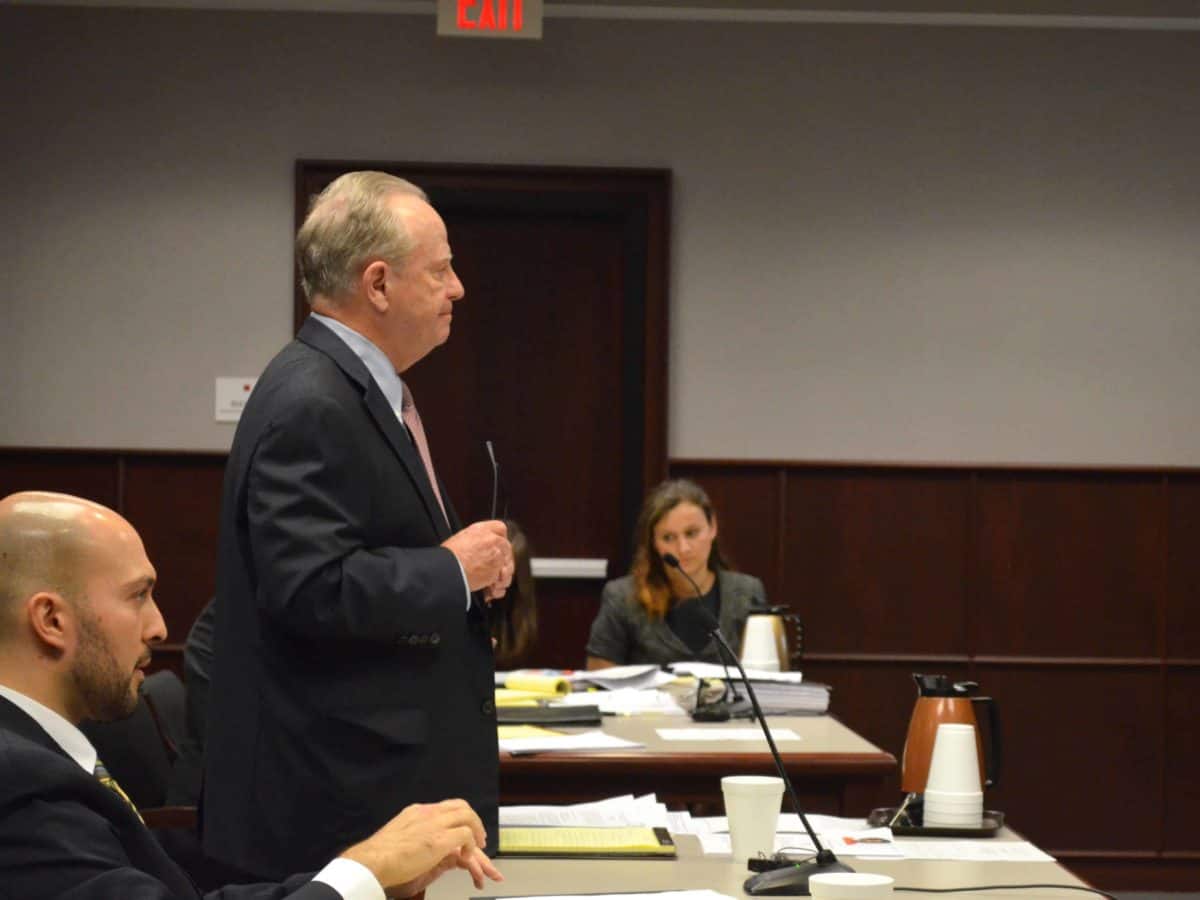

A three-judge panel granted a 30-day extension of the stay in the case of the State Board of Education v. North Carolina and Superintendent Mark Johnson yesterday. The stay prevents Johnson from assuming the powers granted to him in a December special session of the General Assembly and lasts until Monday, October 16.
The judges in the case granted the motion only to allow the attorneys for the State Board time to seek and argue for a temporary stay from the appellate court.
“We are pleased the court has blocked this law for another month to allow the appellate courts to consider the case,” said State Board of Education Chair Bill Cobey in an e-mailed statement.
Johnson said in an e-mailed statement that he was disappointed by the ruling.
“Chairman Cobey and Vice Chair Collins are vigorously defending the status quo for our education system at the expense of students, educators, and taxpayers,” Johnson said. “I am confident I will eventually be able to lead the positive transformation for our schools that the people of North Carolina voted for over 10 months ago.”
The three judges in the case are Hon. Forrest Bridges, Hon. Martin McGee, and Hon. James Ammons Jr.
They granted a motion for summary judgment in favor of Johnson in July, saying the State Board did not prove the transfer of powers to Johnson were unconstitutional. At that time, they also put into place a 60-day stay that expired this week. The plaintiffs have filed a notice of intent to appeal the judges’ motion for summary judgment to the North Carolina Court of Appeals.
The Board filed suit after the General Assembly passed House Bill 17 in December. Under the law, Johnson becomes the chief authority of the Department of Public Instruction (DPI), a role previously held by the State Board.
Under the law, Johnson also gets direct supervision and administration of the public school system, as well as the power to make decisions pertaining to the termination of certain personnel at DPI.
As in the motions filed with the court, the plaintiffs had two chief arguments for extending the stay yesterday.
One was that without the extension of the temporary stay, the decision-making authority of the State Board would shift to Johnson, and that would result in a transformation in how the state’s public education system is run. The plaintiffs argued that should not happen until the case has made it all the way through the court system.
“It is our contention that that would be an enormous change in the governance structure, and that a stay is necessary to stabilize the governance structure,” said plaintiffs attorney Bob Orr.
The plaintiffs also argued that, at the very least, they should be granted an extension of the stay to give the appellate courts time to hear and rule on a motion themselves to grant a stay.
“In a situation like this where we have a lengthy status quo, we have a three judge panel that has the power to put the breaks on,” said plaintiffs attorney Andrew Erteschik.
Many options for the stay were presented to the judge including a 60-day extension, a 30-day extension, and a stay that would remain in place until the appellate court gets its own opportunity to consider instituting a stay.
Earlier in the hearing, an attorney for the superintendent, Philip R. Isley, expressed surprise at the extensive conversation between the judges and the plaintiffs as to the different options regarding a stay.
“I’m somewhat taken aback by this conversation because our position is that there should be no stay,” he said.
He went on to criticize the plaintiff’s characterizations of what would happen should Superintendent Johnson take on his new powers.
“The plaintiffs have done a fantastic job, apparently, of convincing this panel that all hell is going to break loose,” he said.
He said that the concerns raised by the plaintiffs in their motions were completely hypothetical He argued that prior to 1995, DPI was run by the Superintendent of Public Instruction. It was only after December of that year, when the General Assembly transferred the superintendent’s powers to the State Board, that the current “status quo” came into being.
“Did the world stop turning?” he asked.
Just as life went on for state public schools then, Isley argued they would continue running if Johnson assumed his new responsibilities. He also said the plaintiff’s claim about what Johnson would do with his powers were all speculation with no basis in fact.
“They make my client out to be this boogeyman who is going to come with an axe and start swinging heads and everyone is going to be fired,” he said. “That could not be further from the truth.”
The plaintiffs were asked why they had not already tried to get a temporary stay at the appellate level. Erteschik explained that the plaintiffs and the defendants had tried, instead, to come to an agreement amongst themselves.
“That’s a common practice in a situation like this, and we tried very hard for a very long time,” he said.
Ultimately, the discussions were unsuccessful. But, he also pointed out that it was only the attorneys for Johnson opposing the motion for an extension of the stay. The attorneys for the state took no position.
“If the superintendent hadn’t taken a position, we wouldn’t be here in front of the court,” he said.


